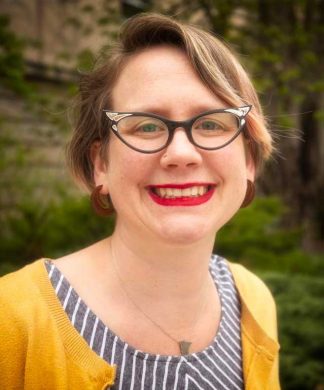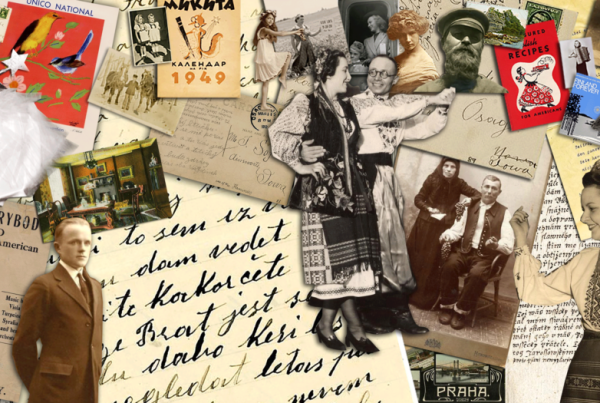By Allison Campbell-Jensen
It was an uncertain time. Just a few weeks after the state of Minnesota went into lockdown to cope with COVID, in March 2020, University librarians Megan Kocher, Amy Riegelman, and Julie Kelly, with colleagues Kate Ghezzi-Kopel from Cornell University and Sarah Young from Carnegie Mellon University, submitted a grant proposal to the Institute of Museum and Library Services Laura Bush 21st Century Librarian Program.
Their original project would have brought librarians to six in-person training institutes to learn, at no charge, how to aid researchers by carrying out systematic reviews and evidence synthesis.
In fall 2020, they received notice they’d been awarded the grant but the pandemic made them realize the institutes would have to change.
The need remained: While colleagues in health sciences libraries have for decades carried out systematic reviews and evidence synthesis with their faculty researchers, librarians outside those fields had seldom done so. Kocher in Agricultural Sciences, Riegelman in Social Sciences, and Kelly in Agricultural and Environmental Sciences are among the ones who have.
“There’s demand for it from faculty. It’s increasingly expected in journals that you’re not just doing a narrative review, that you are using systematic methods,” Kocher says. “It’s new to them and they’re largely getting guidance from their librarians on this.”
Many librarians, however, need training. Fortunately, the team had run a trial online institute in August. Kocher, Kelly, and Riegelman saw an opportunity in the change.
An improved version
The need to revamp the budget led to some improvements. Cutting travel costs opened up the budget so the team could hire an instructional designer, Lindsay Matts-Benson, who “made the online version a lot more polished,” Kocher says. The team also was able to hire a video producer and created seven videos for the training institute, including Working with a Librarian on Evidence Synthesis and Exploring Different Review Methodologies.
“We interviewed researchers and faculty we’ve worked with on systematic reviews,” Kocher says. “They give really great insights to participants about how researchers approach these projects and what they get out of working with a librarian.”
The videos offer the participants more context and information direct from researchers than they would have had in the in-person format, she adds. These videos also will benefit those who can attend in person when the team can hold those institutes in the future. They are planning to host the first in-person institute in August 2022, incorporating all the materials and expertise gained from the larger teaching teams and video resources created for online.
Another benefit to online is that they were able to open up the institutes to more participants. In the original plan, only 20 could have attended each institute, to be led by four instructors. By going online, at each institute they increased the number of attendees to 50 and the instructors to 10, “which was really awesome,” Kocher says. Along with pulling in colleagues from Cornell and CMU, they brought in partners from East Africa whom they had gotten to know while doing research for the international Ceres2030 project.
“We were able to bring this international perspective to the institute participants as well,” she says.
In addition, some of the African partners want to build a similar institute in their home countries.
“They will be able to take our curriculum and build on that for their needs,” Kocher says. “It was a mutually beneficial situation that could not have been done in person.”
Building a community
The team has hosted two online training institutes so far. (The next is scheduled for March 22-25, 2022.)
“We librarians know how to do a literature search,” Kocher says, “but we don’t know this method, the type of documentation, the type of process we need to go through for this evidence synthesis. This brings them up to speed and we try to give them a variety of models.”
Looking at the larger landscape, the team is excited for others to know how to do systematic reviews and evidence synthesis in ways that are transparent and reproducible — and also for them to feel that they are supported.
Kocher is enthusiastic about the community that is being built.
“When we started working together with Cornell, we were the only two institutions doing systematic reviews outside the health sciences, and we really liked having support for that,” Kocher says.
“I left the institute feeling much more confident in my abilities and actually excited to work on this more with my faculty and seek a co-author to get more practical experience!”
—Institute participant
They have been keen to create an open and collaborative community. One avenue to encourage openness is that people in the institutes can ask questions in a variety of ways — anonymously or directly — as well as through the list serve the team set up.
Building community is especially important now, Kocher says, because of stress caused by COVID.
“We see you all trying to do this during this pandemic and we are, too. We know you might have kids at home, you might have other things weighing on you, so take the time you need,” she says. “We’re going to get you everything we can, we’re going to put as much online as we can, we’re going to be here to answer questions.”
The team has received very positive responses to the institutes. One attendee wrote: “I came into this knowing the basics and having the ability to somewhat guide researchers in the right direction for a review, but really lacked the confidence to provide more robust support or even consider co-authoring. I left the institute feeling much more confident in my abilities and actually excited to work on this more with my faculty and seek a co-author to get more practical experience!”
Another noted: “Each speaker presented with both authority and humanity.”
The team was complimented on their sharing of information, for meeting adult learners where they were, for excellent organization, and for their warmth and kindness. Hearing about empowerment and kindness struck Kocher as “not something you usually think of when going through a library training.”
She adds: “I think that’s really special, because of the team’s relationships were built on this collaboration and we were so intentional about that’s what we want to build in the world.”
The team has been asked to consult on systematic review services at other universities and has gained some national recognition. Kocher also looks forward, the pandemic situation allowing, to an in-person conference to be held near the end of the three-year grant. Institute participants could present, she says, and everyone could engage in more community building.
“Already we’ve got people collaborating, students and instructors,” she says, “on some really interesting things going forward, like AI (artificial intelligence). Things are really growing.” Given the pandemic, some things still remain uncertain, yet it’s an exciting time to be changing librarian-researcher relationships for the better.




